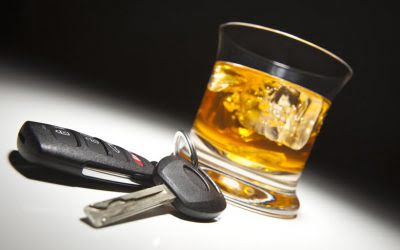Once you consume alcohol, it’s already in your body and must be removed by the liver. The liver processes 3/4th of an ounce of alcohol per hour, and drinking water will not make it happen faster. Pay attention to how your body is feeling whenever you drink. Monitor your fluid intake and how much urine you are producing. Large amounts of dark-colored urine could indicate dehydration.
What Type of Alcohol Dehydrates You The Most?
- In fact, our locations offer a dedicated IV drip therapy for hangovers and their common symptoms.
- If you have a full stomach, it can essentially slow down the absorption of alcohol.
- Reframe supports you in reducing alcohol consumption and enhancing your well-being.
- This is one reason why drinking water with wine leaves you with a less potent or faster buzz.
- You’re likely to urinate 100 mL more for every standard drink you consume (10 mL of alcohol).
- Our body requires water and fluids to maintain normal functions.
When you lose too much water without properly replacing it, you become dehydrated. Dehydration can cause mild symptoms like headache, dry mouth, dizziness, and fatigue, or severe issues like damage to the brain, heart, kidneys, and even death (1). Drinks that contained electrolytes—milk and oral rehydration solutions, for example—were more hydrating after two hours compared to water. 6 In other words, subjects peed less relative to their fluid intake two hours after consuming these drinks compared to water.

Drink more water
But when it comes down to it, the type of wine’s impact on hydration is more about the alcohol content than these other bits. So, whether it’s red or white, both can dehydrate you, mainly depending on their alcohol strength and how much you drink. As someone who enjoys a glass of wine with dinner or during social gatherings, I’ve personally experienced the potential dehydration effects.

Additional Resources on Sobriety and Alcohol Facts:

It seems simple, but water truly is the best beverage when it comes to fast rehydration. It’s very easy for your body to process and for your intestines to absorb. If you drink a glass of water for each glass of wine you down, you may never feel the effects of dehydration at all (and you’ll still get a slight, though pleasant, buzz). But what if you aren’t in an extreme situation but are instead just looking to deal with a headache or get ready for another round at a party?
Nutritionally speaking, it’s best to limit alcohol consumption as much as possible. The diuretic effect of alcohol inhibits the production of the antidiuretic hormone “vasopressin,” which is crucial for water retention. As a result, the kidneys’ ability to retain water is compromised, leading to increased urination and fluid loss.
So the less alcohol that’s in your system, the easier it is to stay hydrated. Yes, allergies to red wine are possible, often due to sulfites or histamines. Allergic reactions can sometimes lead to fluid loss through vomiting or diarrhea, exacerbating dehydration. In conclusion, dehydrating wine is not possible due to the unique nature of alcohol and the important role water plays in its composition. The attempt to dehydrate wine would result in the loss of both alcohol and water, fundamentally altering its taste and character. However, there are alternative preservation methods such as freeze-drying, although they do compromise the integrity of the wine.
What Type of Alcohol Dehydrates You the Most?
Dehydration is when the body does not have sufficient amounts of fluid to function effectively. This happens when a person loses more fluids than they take in. In fact, you might find yourself extremely dehydrated, accompanied by a headache after a full night of a beer party.
Does the temperature of red wine affect how dehydrating it is?
Additionally, alcohol can drug addiction impair your body’s ability to regulate temperature and maintain electrolyte balance. Don’t assume that a single glass of wine will overly dehydrate you, but keep in mind that wine is generally dehydrating compared to other alcoholic beverages like beer. Drinking water before, during, and after alcohol consumption can help prevent dehydration.
That said, being dehydrated before drinking alcohol could cause your blood alcohol concentration to increase more quickly. Generally, red wines tend to have a slightly higher alcohol content compared to white wines, although this can vary widely depending on the specific type and brand. Higher alcohol content contributes to a greater diuretic effect, potentially leading to more significant dehydration. When comparing the dehydration effects of wine and beer, it all comes down to their alcohol content. https://morad-sweets.com/addiction-memoirs-70-books/ Beer typically has about 4% to 6% alcohol, while wine steps it up with around 11% to 14%.
Alcohol has a diuretic effect, which increases urine production in the body and depletes fluids in the body. When alcohol is consumed, it inhibits the hormone vasopressin, which regulates water balance in the body. This reduction in vasopressin levels leads to increased urine production and water loss in the body, ultimately leading to dehydration. Because your body has to use extra energy to break down the wine contents, your body’s core temperature may also increase. If you are wearing multiple layers or in a warm environment, you could induce a light sweat if you drink multiple glasses of wine in a row.
When your body can’t get rid of acetaldehyde quickly enough, you may experience your body getting rid of this substance the next morning (usually by vomiting) 5. A 2019 study by Nutt et al. highlights that personal metabolism and genetics play significant roles in how alcohol affects hydration and overall health. Discover how gut health impacts everything from brain fog to hormones, and how to can wine dehydrate you reverse the cycle. In a few minutes, you’ll feel the effects of the IV drip therapy and may experience your hangover symptoms vanish into the ether. The action of suppressing this hormone exacerbates the diuretic effect and leads to dehydration.
- If you’re only looking to reduce your sugar intake, dry wine is a good choice.
- Yes, electrolyte drinks can help replenish lost electrolytes due to increased urination.
Let’s talk about dehydration from alcohol — why it happens, how to avoid it, and the immediate remedies you can use to avoid a hangover. For use in soups and stews, particularly slow cooker ones, dehydrated mushrooms can be added without pre-soaking. Simply make sure your soup or stew has 1 cup extra liquid per 1/2 cup dried mushrooms that are added. Dehydrated mushrooms should be crisp and easily snap in half when they are fully dried. During storage they may soften and become less crisp, but if a mushroom feels leathery and flexible when in the dehydrator, it needs more drying time.